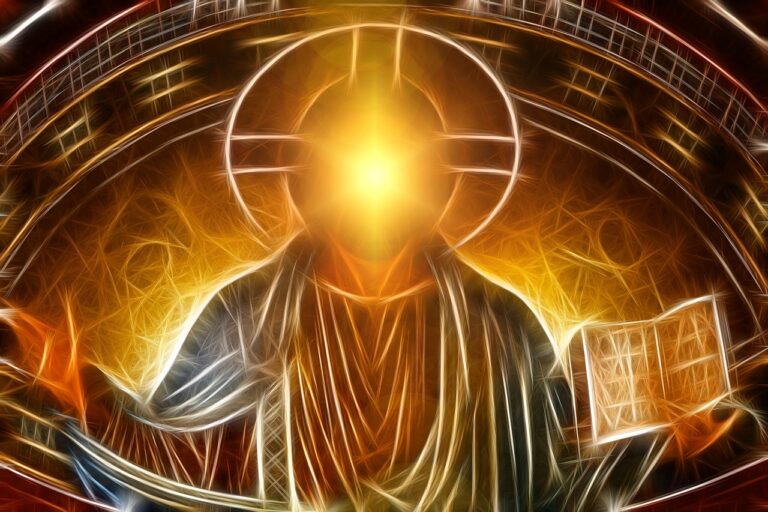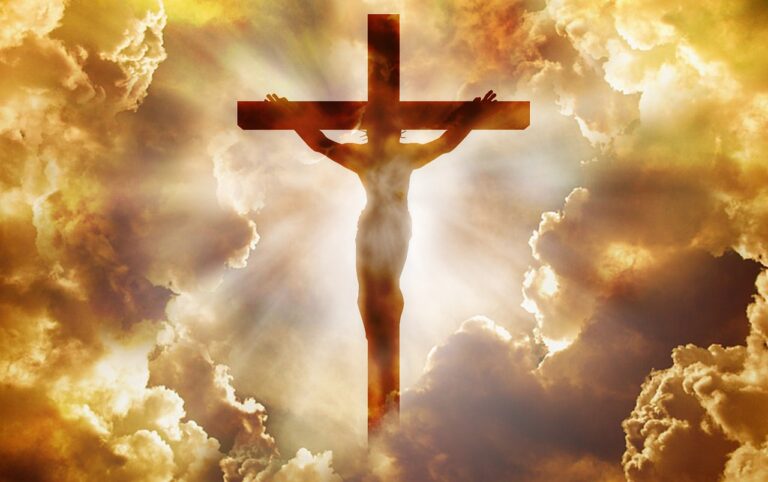Introduction
Melchizedek is one of the most mysterious individuals in the Bible. Almost nothing is known about his life, and he only shows up a couple of times in scripture. His initial appearance is in Genesis 14 when he blesses Abram (Abraham) after his successful battle to save lot from the kings of the north. He then vanishes from Scripture until he’s mentioned in a messianic prophecy by David in Psalm 110. Finally, he is mentioned again in the New Testament by the writer of Hebrews. Here he explains the priesthood of Jesus in chapters 5, 6, and 7.
GENESIS 14:18-20
18Melchizedek, king of Salem, brought out bread and wine; he was a priest to God Most High. 19He blessed him and said: Abram is blessed by God Most High, Creator of heaven and earth, 20and blessed be God Most High who has handed over your enemies to you. And Abram gave him a tenth of everything.
PSALM 110:1-4
1This is the declaration of the Lord to my Lord: “Sit at my right hand until I make your enemies your footstool.” 2The Lord will extend your mighty scepter from Zion. Rule over your surrounding enemies. 3Your people will volunteer on your day of battle. In holy splendor, from the womb of the dawn, the dew of your youth belongs to you. 4The Lord has sworn an oath and will not take it back: “You are a priest forever according to the pattern of Melchizedek.”
HEBREWS 6:20-7:28
1For this Melchizedek, king of Salem, priest of God Most High, met Abraham and blessed him as he returned from defeating the kings, 2and Abraham gave him a tenth of everything. First, his name means king of righteousness, then also, king of Salem, meaning king of peace. 3Without father, mother, or genealogy, having neither beginning of days nor end of life, but resembling the Son of God, he remains a priest forever. 4Now consider how great this man was: even Abraham the patriarch gave a tenth of the plunder to him.
5The sons of Levi who receive the priestly office have a command according to the law to collect a tenth from the people — that is, from their brothers and sisters — though they have also descended from Abraham. 6But one without this lineage collected a tenth from Abraham and blessed the one who had the promises. 7Without a doubt, the inferior is blessed by the superior. 8In the one case, men who will die receive a tenth, but in the other case, Scripture testifies that he lives. 9And in a sense Levi himself, who receives a tenth, has paid a tenth through Abraham, 10for he was still within his ancestor when Melchizedek met him.
The Scholarly Debate
Many scholars and ministers have debated the exact identity of Melchizedek. A lesser held view is that the meeting with Abram in Genesis was just a story and didn’t really happen. The more common views are 1) he was a type or representation of the Christ to come or 2) he was indeed the pre-incarnate Jesus. I will admit that I came into my study of this subject leaning toward the latter of the two views. However, I attempted to keep an open mind and allow the Scripture to speak for itself to see what conclusion I would come to.
Was Melchizedek’s Blessing of Abram Just a Story?
The idea that Melchizedek’s blessing of Abram was just a tall tale meant to convey some higher truth doesn’t hold water. If we approach the ancient Biblical writings with the same integrity that we approach all other ancient writings, we will conclude that the author is recording real events.
The author isn’t using literary device or poetic speech. His writings are in the style of historical narrative just like other parts of the same text that we know are meant to be taken literally. So, there’s no reason to believe that the author meant this passage to be taken differently than the other historical parts of Genesis. Melchizedek was a real person who really met and blessed Abram.
Melchizedek: Pre-incarnate Jesus or Just a Type?
Many consider Melchizedek to be a theophany (pre-incarnate Jesus). The first reason for this is his sudden and mysterious appearance and disappearance from the text without any more information given about him (Gen. 14:18-20).
The second reason is his status as priest king. The Levitical priests in the line of Aaron and the kings of Israel were always separate. The priests were Levites, and the kings came from other tribes. There is the occasional mention of a king like David making sacrifices for the people (2 Sam. 24:18-25), but the official priests were Levites.
Next, we have the fact that Melchizedek means “king of righteousness” or “righteous king” and king of Salem means “king of peace”. His very name seems to be another link to Jesus.
Psalm and Hebrews
Next, we have Melchizedek directly associated with the Messiah in a prophecy given 1000 years before Jesus in Psalm 110. This creates the link between Melchizedek and Jesus, the Messiah. Finally, this is taken up and expanded by the author of Hebrews in the New Testament. He gives us the most complete explanation of the kingly priesthood of Melchizedek and how it relates to Jesus.
In Hebrews 7, we find a New Testament description of what the Genesis account of Melchizedek means for Christ and the believer. Here we have several parts of the passage that seem to imply that Melchizedek might be a divine figure. It implies the eternality of Melchizedek when it describes him as having neither father nor mother and not having beginning or ending of life. Additionally, he is called a priest forever.
This evidence alone would lead one to believe that Melchizedek is indeed Jesus as only God is eternal and there can be only one eternal high priest, which is Jesus. This is where I sat for a long time on this issue; however, we must now note that there is also evidence present in the text that makes this interpretation problematic.
King of Salem
We have established that Melchizedek was a real person who actually met Abram. While king of Salem literally translates to “king of peace”, we also know that Salem was a real place. In fact, it’s believed to be an older name for Jerusalem (Ps. 76:1-2). This implies that Melchizedek was a real human king of a real physical location.
Context
Just like with the original passage in Genesis, we must determine how the author wants us to understand what he was saying. Did the writer of Hebrews want us to take his statements literally or metaphorically? Some would argue that the writer wants us to take statements like “without father, mother, or genealogy, having neither beginning of days nor end of life” metaphorically.
The belief is that Melchizedek is an earthly priest king who is a type or copy of the heavenly priest king in the same way that the tabernacle and temple were a copy or shadow of the heavenly tabernacle. One could argue that the author makes a similar reference to this in chapter 8. If this is the case, then the reference to not having father or mother or beginning or end of life would be a reference to his mysteriousness that adds to his typology. In other words, he was described this way specifically to make the typology link to the coming king priest who would be the Messiah.
Genealogy
Throughout the Old Testament we see that genealogy plays an important role in the patriarchs and the Israelites. The scripture consistently describes people by who they are related to. We also see several full genealogy lists that we just love reading through. Even the Levitical priesthood to which the priesthood in the order of Melchizedek is compared is assigned exclusively by genealogy. Not listing any of this important information for Melchizedek is designed to reinforce that notion that the perfect priesthood isn’t given by descent. This emphasizes him as a typology of the one who would become that perfect priest.
Eternal Priesthood
Given this understanding, we would conclude that the description of Melchizedek remaining a priest forever didn’t mean that the man, Melchizedek, was eternal. It meant that his earthly priesthood was a prophetic typology of the perfected eternal priesthood to come in Jesus.
Which is Correct?
I have laid out evidence for both sides of the argument about the identity of Melchizedek. How do we move forward to determine which is correct? In order to be true to the text and maintain interpretive consistency we must do our best to allow scripture to interpret scripture. We should ask if there are clues that the authors give that lead us to believe one interpretation over the other. After some study I would conclude that the answer is yes. The authors give us clues that indicate that we should take their statements metaphorically and that Melchizedek was not a theophany of Jesus.
Order of Melchizedek
A less compelling argument is the description of Jesus’ eternal priesthood being in the order of Melchizedek. The Hebrew word used for “order” is “diḇrâ”[1] which means in the “manner” of. It’s also sometimes translated in the “pattern” of. This loosely implies that the order of Melchizedek is to be an earthly typology or reflection of the priesthood of Christ.
A Somewhat more compelling argument against Melchizedek being Jesus is the fact that Abram makes no acknowledgment of having been in the presence of God. When we see the Angel of the Lord or other theophanies appear in the Old Testament, there is typically a statement in the text that this was God or an acknowledgment by the person that they had been in or seen the presence of God (Gen. 16:10-13, Ex. 3:1-6, Gen. 22:11-12, 15-18, Gen. 31:11, 32:30). We don’t get this in the Melchizedek account.
Metaphor in Hebrews
The more compelling evidence is found in the very passage in Hebrews that we use to argue for the divinity of Melchizedek. I believe the author of Hebrews tells us how to interpret his passage. Right after he used the terminology that we believe implies the eternal nature of Melchizedek, he goes on to state that this makes him RESEMBLE the Son of God. The Greek word used here for resemble is “aphomoioō”[2] which means to render similar, to produce a facsimile, or cause a model to pass off into an image.
He then explains how great of a “man” he was compared to Abram. Additionally, in Heb. 7:15 he said, “…if another priest LIKE Melchizedek appears…”. Here the Greek word is “homoiotēs” which means resemblance or similitude.
In other words, when the author of Hebrews has the perfect opportunity to literally make the connection and join Melchizedek to Jesus, he opts instead to link them metaphorically only. His explanation indicates that we are to interpret Melchizedek as a typology of Jesus and not actually the pre-incarnate Jesus.
Conclusion
We see the Son of God present and active throughout the Old Testament. It’s very tempting to see Him present in the person of Melchizedek. However, when we consistently use the principles of good Bible interpretation, we conclude that in this particular case, the link is not one of exact identity. It’s a link through typology. Melchizedek was a type of the priest king to come.
The Takeaway
We should remember that our hope rests in Jesus Christ and not whether or not we are on the same side of this argument. Jesus is our perfect and eternal King and High Priest. We have the very best representation that anyone could ask for because we have the Son of God advocating for us to the Father. We don’t hang our hope on winning arguments. Our hope rests with our Lord and Savior Jesus Christ.
Blessings
[1] https://www.blueletterbible.org/lexicon/h1700/csb/wlc/0-1/
[2] https://www.blueletterbible.org/lexicon/g871/csb/mgnt/0-1/






2 thoughts on “Who is Melchizedek?”
I am glad you hit on this one. At the cove it was asked and they said focus on Hebrews but I am still not sure. I like your conclusion! I heard Melchizedek is more of a title than a name. Also if you trace who could be alive and would be considered to have the same God it could be Noahs son Shem but there are arguments against that as well.
Thank you for your feedback. I appreciate your perspective and insight. It’s cool that you got to discuss this at the Cove. I’m excited about digging deeper into Genesis.